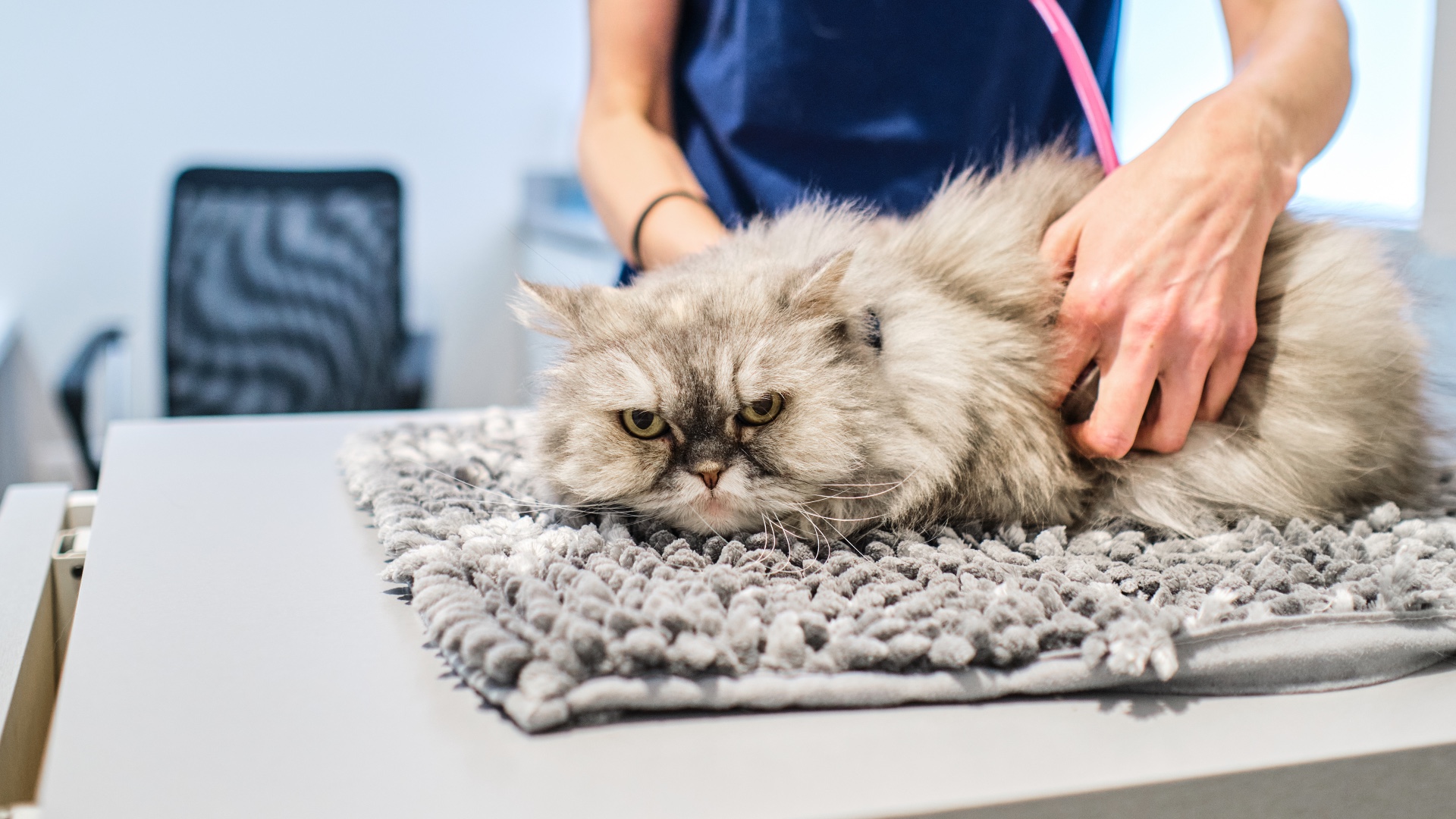Cat behaviorist shares seven tips for less stressful vet visits — and number four will make all the difference
Say goodbye to stressful vet visits with this behaviorist’s seven tips for a calmer cat

Get the best advice, tips and top tech for your beloved Pets
You are now subscribed
Your newsletter sign-up was successful
If there's one thing our feline friends hate more than anything else in the world, it's being poked and prodded by a vet. Whether it's an upset stomach in cats or a concern about a cat drinking a lot of water, there are lots of reasons why your kitty may need to be given a good looking over.
Unfortunately, while we pet parents are only ever doing what we feel is best for our beloved bundles of fluff, our cats often find vet visits incredibly stressful. Thankfully, expert behaviorist Tabitha Kucera has come to the rescue with a great Instagram post where she shares her top tips for helping to make those trips to the vet a whole lot less anxiety-inducing.
You can check out Kucera's Infographic below, or keep reading as we break down her seven tips for how to decrease stress at the vet for your cat.
A post shared by Tabitha RVT, Cat & Dog Trainer (@chirrupsandchatter)
A photo posted by on
Kucera was inspired to put together her Instagram post after trying out all the tips on her own kitty, Malt.
"The fact that going to the vet, administering medications, etc are not stressful is such a relief," she says. "We all worry about our animals but I don’t have to worry about fear and stress associated with vet visits, we can easily and happily get the diagnostics needed, and she loves taking medications at home. We have worked together to make all of these things less stressful for her and you can do this with your pets too!"
So, without further ado, here is what Kucera recommends based on her own experience with Malt:
1. Bring food: "Bring food items for them to eat off of (ice cream cones, long spoon, lickimat)"
Get the best advice, tips and top tech for your beloved Pets
2. Make travel low-stress: "We use a covered carrier with a Feliway towel to minimize visual stressful stimuli. We stay in the car until we can go directly into the exam room to avoid the possible stressors of a lobby."
3. Bring your cat's favorite treats, brush or toy: "We provide a treat she enjoys before, during, and after the vet visit."
4. Advocate for your cat: "My cats and I have a wonderful relationship with our vet and the clinic: they are aware of their triggers, painful areas, etc."
5. Don't rush: "Assess the cats body language and be flexible with handling techniques based on the cats individual preference. Allow the cat to maintain their chosen position and vary your touch based on their response."
6. Teach your cat cooperative care: "We have worked on cooperative care at home and in other environments. Everything is done in the room with me there."
7. Bring your cat's mat or their favorite bed: Their bed carries their scent as well as familiar smells from home, so having this on hand can be wonderful for soothing stress and anxiety.
If you find after applying the above tips that your cat still really struggles with visits to the vet, we recommend consulting with a professional behaviorist or speaking with your vet to get advice and guidance that's been specifically tailored to meet the needs of your feline friend.
Looking for more great tips? Check out 20 ways to make a visit to the vet less stressful.

Kathryn is a freelance writer who has been a member of the PetsRadar family since it launched in 2020. Highly experienced in her field, she's driven by a desire to provide pet parents with accurate, timely, and informative content that enables them to provide their fur friends with everything they need to thrive.
Kathryn works closely with vets and trainers to ensure all articles offer the most up-to-date information across a range of pet-related fields, from insights into health and behavior issues to tips on products and training.
When she’s not busy crafting the perfect sentence for her features, buying guides and news pieces, she can be found hanging out with her family (which includes one super sassy cat and a kitten), drinking copious amounts of Jasmine tea and reading all the books.
She has written for a range of publications, including Fit&Well, Top Ten Reviews, LiveScience, Goodto, and Product Hunt.
